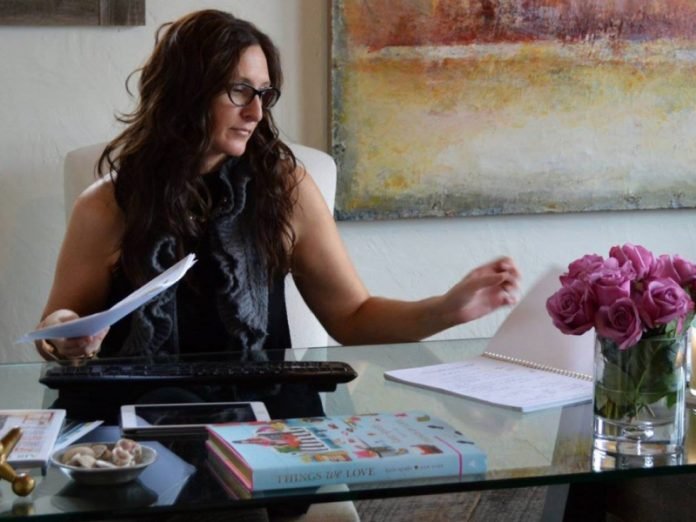
Jennifer Michele always has had a knack for sprucing up spaces. That talent prompted her to start an interior design firm in 2007. She then quickly landed the sort of high-profile design job that can make a career.
Less than a year later, at age 29, she had a stroke.
It happened on a late November morning in Vail, Colorado, where Michele lived with her then-husband Brent Wilson and their two young children. After plugging in the Christmas lights, she plopped down on the sofa in a daze.
“You OK?” he asked.
“OK,” Michele said, then went to bed.
Wilson’s friend, Bruce Stott, also was there; the two were headed to a popular skiing competition. Stott’s mother recently had a stroke and as they drove along, something about Michele’s behavior worried him. He urged Wilson to go home and check on her.
He found Michele in bed and was unable to rouse her for several minutes. He got her to the emergency room, where doctors saw her immediately.
They sent her by helicopter to Swedish Medical Center in Denver, and neurologists there told her she’d had a stroke and tried to talk with her, but she couldn’t speak or write.
“It’s so frustrating, because everything’s in your head, but you can’t communicate,” Michele said.
Soon doctors discovered the cause of Michele’s stroke: She was born with complex fenestrated atrial septal defects, or multiple small holes in the heart.
“It looked like Swiss cheese,” said Dr. Lee MacDonald, a cardiologist.
A blood clot passed through one of the holes in her heart and reached Michele’s brain, causing the stroke, MacDonald said.
One of the first operations MacDonald ever observed was an open-heart surgery to correct the same condition. However, advances in technology made such an invasive procedure unnecessary.
With the help of Dr. Christopher Fanale, a neurologist, MacDonald closed the holes with a special device delivered to Michele’s heart through a small tube inserted in a leg artery, allowing her to be up and walking the same day.
“Now that these defects are covered over, her risk of stroke has been dramatically reduced,” MacDonald said.
MacDonald advised young people to be aware of the signs and symptoms of stroke. They’re best remembered by the acronym FAST, which stands for face drooping, arm weakness or speech difficulty, time to call 911.
“If you have any neurological symptoms, even if you’re a young person, go to the emergency room immediately,” MacDonald said.
After being released from the hospital, Michele went back to work, but she had trouble communicating. During a group tour of her big project, she tried to write a message on a small chalkboard that hung from her neck, but nobody could make out the words.
Michele’s impaired speech had an impact on her two children as well.
“My daughter learned Spanish from the nanny before she learned English because I couldn’t talk,” Michele said. “It was a hard transition for everyone.”
But she kept at it, attending sessions with a speech therapist, sometimes singing the words.
“It helps with the beat,” she said.
Eventually, while walking through the site of her big project, she was able to clearly say her first words in months: the name of a tile company she used on the job.
While Michele went on to build a successful business, she still deals with the stroke’s aftermath. Unable to spell like she once could, she relies on her assistant to read over emails. And when she’s stressed or tired, she often can’t find the right word.
“I recently told a friend that I loved ‘an orchid,’ but I was looking at an olive tree,” she said.
To stay in top form, the former night owl needs 10 to 13 hours of sleep and plenty of downtime. Instead of checking her email the first thing in the morning, she meditates, says affirmations and reads.
“I was more cutthroat before,” she said. “I wanted it all, and I wasn’t patient. Now I live in the moment.”
In that spirit, Michele has become more selective about the projects she takes on, saying yes only to those that inspire her.
She left Vail for Whitefish, Montana, and soon will be moving again. She’s opening a design studio in her hometown, Laguna Beach, California, where her 13-year-old son, Jens, and 11-year-old daughter, Isabella, will attend the same school that she once did.
“Having a stroke was the best thing that ever happened to me,” Michele said. “It led me to other possibilities, and that’s been nice.”
If you care about heart health, please read studies about statin drugs can do double duty on heart disease and cancer and findings of how COVID affects the heart.
For more information about heart disease, please see recent studies about more than 40% of people with no heart disease have too much fat in arteries and results showing that six unusual signs that you may have heart disease.



